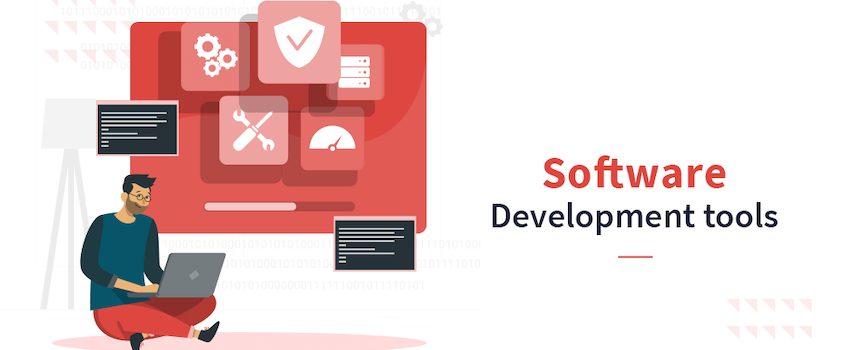As the software development landscape continues to evolve, developers need the right tools to stay competitive, efficient, and innovative. Whether you’re a seasoned programmer or just starting, using the best tools can significantly enhance your productivity and streamline your workflow. Here’s a look at the top 10 software development tools for 2024 that are making waves in the industry.
1. Visual Studio Code (VS Code)
Overview: VS Code remains one of the most popular and versatile code editors available. It supports a wide range of programming languages and offers extensive customization through extensions. Its lightweight design, combined with powerful features like IntelliSense and Git integration, makes it a top choice for developers.
Key Features:
- Intelligent code completion
- Integrated Git support
- Extensive extension library
- Debugging capabilities
- Cross-platform support
2. GitHub Copilot
Overview: GitHub Copilot, powered by OpenAI’s Codex, is an AI-powered code assistant that helps developers write code faster and more accurately. It suggests entire lines or blocks of code as you type, making it an invaluable tool for speeding up development and reducing errors.
Key Features:
- AI-driven code suggestions
- Supports multiple programming languages
- Integrated directly into popular IDEs like VS Code
- Learns from your coding style
3. JetBrains IntelliJ IDEA

Overview: IntelliJ IDEA is a powerful integrated development environment (IDE) designed primarily for Java development but supports other languages as well. It offers advanced code analysis, refactoring tools, and integrated version control, making it a favorite among professional developers.
Key Features:
- Smart code completion
- Advanced refactoring tools
- Built-in decompiler
- Supports multiple programming languages
- Seamless integration with build tools and version control systems
4. Docker
Overview: Docker revolutionizes the way developers build, ship, and run applications. By using containerization, Docker ensures that your software runs consistently across different environments, eliminating the “it works on my machine” problem.
Key Features:
- Containerization of applications
- Efficient resource utilization
- Consistent development, testing, and production environments
- Integration with CI/CD pipelines
5. GitLab
Overview: GitLab is a complete DevOps platform that provides everything from source code management to CI/CD, security, and monitoring. It’s an all-in-one tool that supports the entire software development lifecycle, making it a great choice for teams looking to streamline their processes.
Key Features:
- Integrated CI/CD pipelines
- Code review and collaboration tools
- Built-in security and monitoring features
- Kubernetes integration
- Self-hosted and cloud options
6. Postman
Overview: Postman is an API development tool that simplifies the process of building, testing, and documenting APIs. Its user-friendly interface and powerful features make it a go-to tool for developers working with APIs, whether in REST, SOAP, or GraphQL.
Key Features:
- API testing and debugging
- Automated testing with collections
- Mock servers for simulating APIs
- API documentation generation
- Integration with CI/CD pipelines
7. JIRA
Overview: JIRA is a leading project management tool designed specifically for software development teams. It offers robust features for tracking issues, managing sprints, and planning releases, making it essential for agile teams.
Key Features:
- Customizable workflows
- Agile boards (Scrum and Kanban)
- Release management tools
- Integration with other Atlassian products (e.g., Confluence, Bitbucket)
- Extensive plugin ecosystem
8. Slack
Overview: Slack has become the standard for team communication in software development. Its real-time messaging, file sharing, and integration capabilities make it an essential tool for keeping development teams connected and organized.
Key Features:
- Real-time messaging and collaboration
- Integration with popular developer tools (e.g., GitHub, Jenkins, JIRA)
- Channels for organized communication
- File sharing and storage
- Customizable notifications
9. Terraform
Overview: Terraform, by HashiCorp, is an infrastructure-as-code (IaC) tool that enables developers to define and provision data center infrastructure using a high-level configuration language. It’s widely used for automating cloud infrastructure deployments, making it indispensable for DevOps teams.
Key Features:
- Infrastructure as code (IaC)
- Multi-cloud support (AWS, Azure, GCP, etc.)
- Version control for infrastructure
- Automated and repeatable deployments
- Strong community support and modules
10. Selenium
Overview: Selenium is an open-source tool for automating web browsers. It’s widely used for testing web applications, ensuring they work across different browsers and platforms. Selenium supports multiple programming languages, making it a versatile tool for QA teams.
Key Features:
- Cross-browser testing
- Support for multiple programming languages (Java, Python, C#, etc.)
- Integration with CI/CD pipelines
- Detailed testing reports
- Community-driven plugins and extensions
Conclusion
Choosing the right software development tools can make a significant difference in your productivity and the quality of your projects. The tools listed above represent the best of what 2024 has to offer, covering everything from code editing and version control to project management and testing. By incorporating these tools into your workflow, you can stay ahead of the curve and continue to deliver high-quality software.











